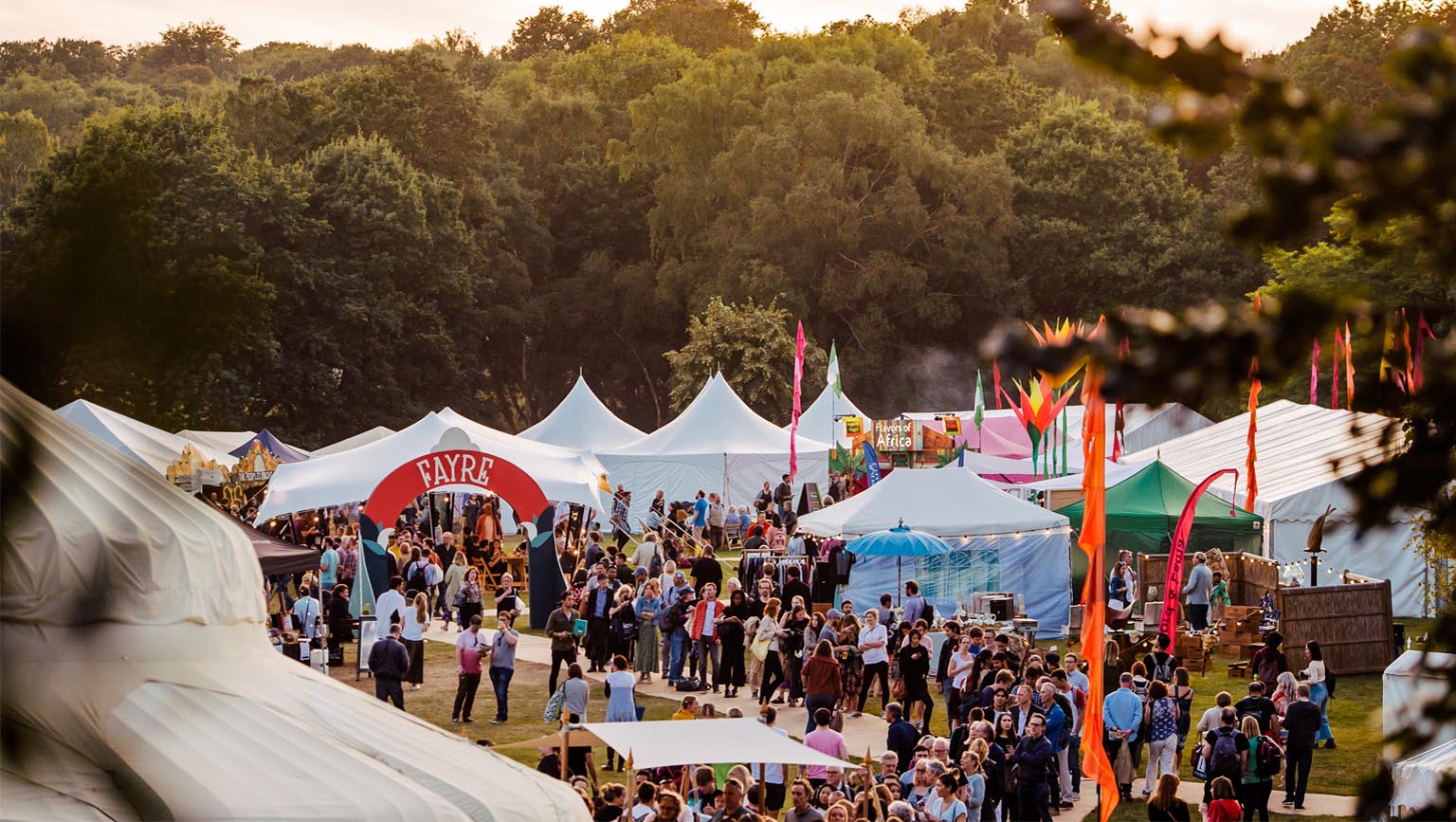
The Basement Gym + Studio opens in Camden Town
Camdenist readers get 50% off their first month’s membership, too

The world’s largest festival of philosophy and music is returning to Kenwood House, 23- 24 September 2023.
As media partners of the event, all Camdenist readers get 20% OFF the price of full tickets. Use the code CAM23 at the checkout.
HTLGI has been at Kenwood for a number of years now, how do you feel this London edition has developed over time [there’s also a spring edition at Hay] and is it here to stay?
It’s absolutely here to stay. I think we’ve developed nicely over time since our first Kenwood event in 2018, but of course it’s been a fantastically tricky few years because of Covid, and then we had the misfortune of having to postpone last year’s festival by two weeks as it clashed with the Queen’s funeral. Touch wood this year HowTheLightGetsIn 2023 will be back to something approximately normal.
What has it been like navigating these challenges from the perspective as the event organiser?
They have been enormously difficult. When we had to move the date for the Queen’s funeral it was an unbelievable amount of work, and it was incredibly difficult for us to deliver during that time. We had a lot of sympathy from the public, but I don’t think people still really appreciated just how much effort is involved.
Covid meant that we developed our online events and our virtual festival and that was all very good, but really, when we started all this, we were just trying to put philosophy back into public life. It seemed a fairly laughable idea back then, but I think in a broader sense we’ve had success, in that philosophy is not quite the dirty word it was 15 years ago. In terms of trying to put the big ideas at the forefront, it’s having an effect, so we’re very much in a positive mood about the way the festival is developing overall and its long-term impact.
Which of the many topics discussed at HTLGI do you feel is most undervalued, and why should we pay it more attention?
Sometimes people perceive us as conveying difficult academic ideas to the general public, but that’s not really what we’re doing at all. We’re trying to be at the edge of contemporary ideas, looking at the big questions that are that are coming up. Sometimes those are aligned to topics everyone is talking about – like AI at the moment – and sometimes not at all. We have a really interesting debate this year called The AI Apocalypse, which will explore where its leading, but perhaps also asking questions that are a bit unusual.
Often the way that things are discussed in public are at the mercy of the vested interests who want to frame it their way. One of the things we’ve looked at is that the very phrase AI is a marketing term. It makes it look as if we have true artificial intelligence now when we clearly don’t. In the debate we’ll explore whether this really doing something intelligent or simply some sort of dumb learning?
There are a whole lot of people who want to give the impression that they’re doing things which are fantastically sophisticated, and that plays to journalists as well to the corporations putting it forward. But there’s certainly a case that it’s not really like that at all, which doesn’t mean to say that it’s not potentially really dangerous, just not for the reason that are presented to us.
What do you feel the prospects are for truth as we head so rapidly into this new technological era?
When we started, we were doing debates on whether society has overstressed the importance of reason, and is emotion actually more important? Well, here we are 15 years later and we’re now asking if we’ve been too critical of reason, and has this created a world in which you can’t decide anything or agree anything?
We’ve got an interesting debate this year called Rationality in the Dock with philosopher Kathleen Stock and psychologist Carol Gilligan about whether reason is able to deliver us to something approaching truth. If we think that it isn’t, are we in danger of just falling into conflict and antagonism? Did we go too far in abandoning rationality? Kathleen Stock will be the defender of reason and objectivity, so it will be a fascinating debate.
This ties in with the overall theme of 2023, which is Dangers, Desires and Destiny, right?
Yes, the reason we chose that theme was because it is only too obvious that the dangers we face today are profound. There are a number that are potentially existential on the geopolitical side, the environmental side, and it to some extent in philosophical truth, too. On all fronts, somehow everything is at stake. As an organization, we are we’re always on the side of optimism, so each debate starts with a fundamental threat and then ask what do we think we can do about this? How can we overcome it? And how can we find a future which we think is a positive and desirable one?
And of course there’s always live music, dancing and food to stimulate the senses if the philosophy ever get too heavy.
Yes. It’s great fun, and what a wonderful location Kenwood is for all that too. One of the things that people usually discover when they come to the festival is that everyone is a philosopher. You can’t avoid being born, and then everyone has to try and deal with it. You’ve got to have some sort of story about what’s going on, some idea of what you’re trying to do. And although we cover the most difficult and challenging areas, there’s always something that people can find that is relevant to things they’re concerned about in their lives. I think that’s why it’s been successful. So as long as we don’t have any major people dying, and no apocalypses, we’ll have a nice relaxing festival this year.
If you enjoyed this piece, read more like it from last year’s HowTheLighGetsIn festival.
HowTheLightGetsIn , the world’s largest philosophy and music festival, returns to London this 23-24 September.
Renowned as a hub for world-leading thinkers, Mercury-prize winning musicians and cutting-edge comedians, this year’s festival theme is ‘Dangers, Desire, and Destiny’. Expect to see Ruby Wax, Alastair Campbell, Rory Stewart, Deborah
Frances-White, David Baddiel, Michio Kaku and more lock horns over a packed weekend of debates, talks and performances. Explore the full line-up here.
As partners of the festival, we’re thrilled to offer 20% off full festival tickets with code CAM23. Get your discounted tickets here.

Camdenist readers get 50% off their first month’s membership, too

A brand new hairdressing and barbering academy has landed in Camden Town and is now seeking style-conscious models and enthusiastic trainees

We speak to founder, Sol, about bringing the studio to Kentish Town

Explore the neighbourhood’s brand new neighbourhood